God's order and intentional design are ever-present and plainly evident in the order and logic of mathematics.
Our students learn to reason with algebra, spotting patterns and relationships, as well as to solve for missing portions of equations and inequalities. Our students learn to apply these skills more complex problems, inductive inquiries, and deductive reasoning. Our students becoming increasingly capable of making statistical analyses, finding meaning in complexity, and eventually influencing the economics and patterns of our society.
Math 6
This course is designed to provide 6th-grade students with a strong foundation for Algebra very early in their Math career. It covers algebraic reasoning which deals with patterns and relationships. The course deals with integers and rational numbers. Students apply arithmetic operations to the different forms of rational numbers. Students utilize algebraic thinking in order to understand the concepts of proportional relationships. Proportional reasoning enables the students to transition to topics such as Ratios, Rates, Percents, Dimensional analysis, and Similarity topics in Geometry. The curriculum allows for the introduction of linear functions. Students are introduced to the collection, display, and analysis of data.
Math 7 (Algebra 1A)
This course is designed for 7th graders. It covers the first part of the Algebra curriculum. The course builds upon earlier concepts that were introduced in the Pre-Algebra course for 6th graders. Students expand their knowledge of real numbers and get exposed to the concept of exponent theory and scientific notation. Students get to solve various forms of Linear equations and inequalities with application to real-world problems. The course builds upon previous knowledge of students in the area of proportional reasoning as they relate to the concepts of Rates, Ratios, and Percents. Students are taught two-variable relationships and the concept of Functions, with emphasis on the characteristics of Linear Functions. Algebra is connected to Data Analysis by the use of Scatter Plots and Trendlines. Students are trained to develop and solve systems of linear equations using various methods.
Math 8 (Algebra 1B)
This course is designed to complement the content of Algebra 1A. It covers the second part of the Algebra curriculum. Students review important concepts from Algebra 1A. Students study the topics of Exponents and Polynomials. This course covers various factoring methods of polynomials. Students are exposed to Quadratic Functions and the various methods of solving quadratic equations. Data Analysis and Probability topics are also covered in this course. Students are exposed minimally to other functions such as the exponential, rational and radical functions in preparation for their future study of Algebra 2 and Trigonometry. Upon successful completion of Algebra 1A and 1B, students are awarded one high school credit for Algebra 1.
Geometry
This course starts with an introduction of undefined terms such as Points, Lines, and Planes, as they form the building blocks of Geometry. Geometric reasoning, as a means of logical reasoning, is featured prominently in this course. Students are trained to use Inductive reasoning to make conjectures, while deductive reasoning is used to verify conjectures. Topics that deal with the study of parallel and perpendicular lines, triangle congruence, properties of triangles, quadrilaterals and other polygons, similarity, right triangles and trigonometry, and circle geometry are all covered in this course. Formal proofs, coordinate geometry, and geometric constructions are applied throughout the course.
Algebra 2 & Trigonometry
This course deals primarily with various types of functions. In addition to an in-depth study of linear and quadratic functions, the course deals with polynomial, exponential, logarithmic, rational, radical, and trigonometric functions. Students are introduced to statistical analysis of a few functions via the use of regression analysis. In addition to a review of real numbers, students expand their knowledge of the number system by studying complex numbers. Data Analysis and Statistics are covered by dealing with measures of central tendency and variation, as well as binomial distributions.
Pre-Calculus
Pre-calculus is an advanced course to naturally follow Algebra 2 & Trigonometry. The main areas include advanced trigonometry and advanced algebra. Main topics in algebra include functions, solving polynomials of higher degrees, the Fundamental Theorem of Algebra, and analyzing exponential and logarithmic functions, including applications such as population growth and compound interest. Trigonometric topics include trig functions based on the unit circle, rotational motion, and analyzing conditional trig equations and identities. Other topics include complex numbers and DeMoivre’s Theorem and a unit on Conics. There is an emphasis on proofs and derivations of theorems.
SUPA Calculus
SUPA Calculus is a two-semester high school class that gives seniors the opportunity to earn Syracuse University credit for the course. The syllabus covers the same topics as first-semester freshman calculus as taught on the SU campus and, while taught by the Faith Heritage faculty, is under the supervision of a faculty member from the University. Topics include the following: functions and their limits; derivatives, optimization, related rates, rectilinear motion, indefinite and definite integrals, areas, volumes. All students who are following an advanced trajectory in math are expected to take this course.
Consumer Math
Consumer Math covers the financial transactions encountered in life, which range from buying food and clothing to taking out loans for cars and homes as well as saving for retirement. Students learn to budget for effective use of financial resources and to develop a consistent savings plan. Calculating income taxes, providing adequate insurance and wise investment planning are also included, helping students to become good stewards of the resources that God has entrusted to their care. Course availability subject to change on an annual basis.
